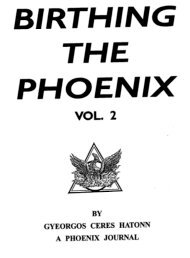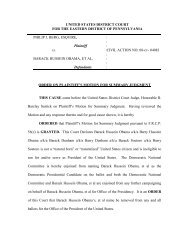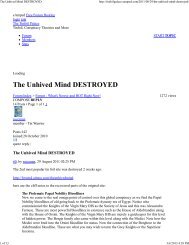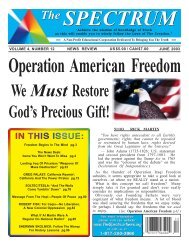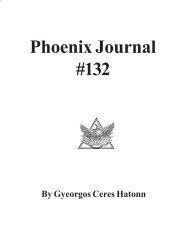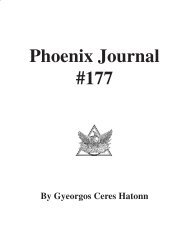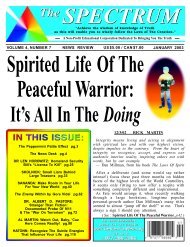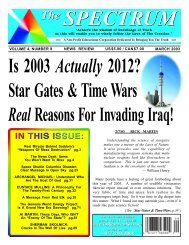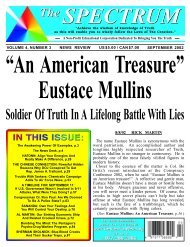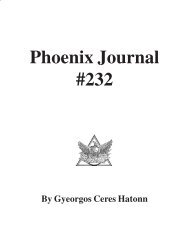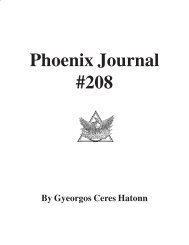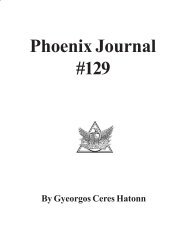You also want an ePaper? Increase the reach of your titles
YUMPU automatically turns print PDFs into web optimized ePapers that Google loves.
CHAPTER 9<br />
EDITORIAL FORUM<br />
WALKING THE WALK BEYOND<br />
SIMPLY TALKING SOME TALK<br />
Editor’s note: While providing room (starting on p.2), in this week’s CONTACT to air the righteous<br />
indignation of several readers from afar, members of the team nearby requested a chance to express<br />
their views about our current legal storms, from more of a position “on the firing line”.<br />
Viewed from a perspective which takes in the Larger Picture, it certainly appears there is, as one<br />
reader put it in her letter, a “conspiracy” afoot amongst several ready puppets of the dark forces,<br />
out to attack those who contribute to this beacon of Light. You discern and sort for yourselves,<br />
from these first-hand accounts, those who really walk THE walk—beyond simply talking some talk.<br />
Indeed, God wins in the end, but nobody said the battle would be dull!<br />
COPYRIGHTING THE WORKS OF GOD<br />
by Ray Bilger 2/9/97<br />
The word plagiarism is defined in Black’s Law Dictionary, 4th Edition (1951), at page 1308, as “The act<br />
of appropriating the literary composition of another, or parts or passages of his writings, or the ideas or<br />
language of the same, and passing them off as the product of one’s own mind.”<br />
The need for laws to protect one’s own literary work no doubt arose because of the greedy nature of some<br />
people to take the work of someone else and then appropriate it for themselves. If you were to tell a friend<br />
about an idea you had for writing a story and then shortly thereafter you saw your story idea in print under<br />
the authorship of your friend, you would be justified in feeling that your friend had stolen your idea, and you<br />
would probably no longer consider them to be a friend.<br />
The Founders of America and the Framers of her Constitution no doubt understood this problem when<br />
they incorporated the provisions for protection of same in the Constitution at Article I, Section 8, Clause<br />
8, which states, “The Congress shall have the power to promote the progress of science and useful arts,<br />
by securing for limited time to authors and inventors the exclusive right to their respective writings and<br />
discoveries.” The purpose of the Clause, as well as the extent and the manner in which it is to be applied,<br />
are the source of continuous debate.<br />
The Supreme Court stated in 1984, in the case of Sony Corp. v. Universal City Studios, Inc., <strong>10</strong>4 S.Ct.<br />
774, 782, that a copyright “is intended to motivate the creative activity of authors and inventors” and at the<br />
same time “to allow the public access to the products of their genius...” Thus, the Congress, in passing<br />
copyright legislation, did promote the progress of science and useful arts.<br />
In order to protect the literary expressions of authors and at the same time to promote the discovery of<br />
new facts and information, copyright legislation drew a clear distinction between fictional and non-fictional<br />
writings. Title 17 U.S.C. Section <strong>10</strong>2(b), states in part that, “in no case does copyright protection for an<br />
51



